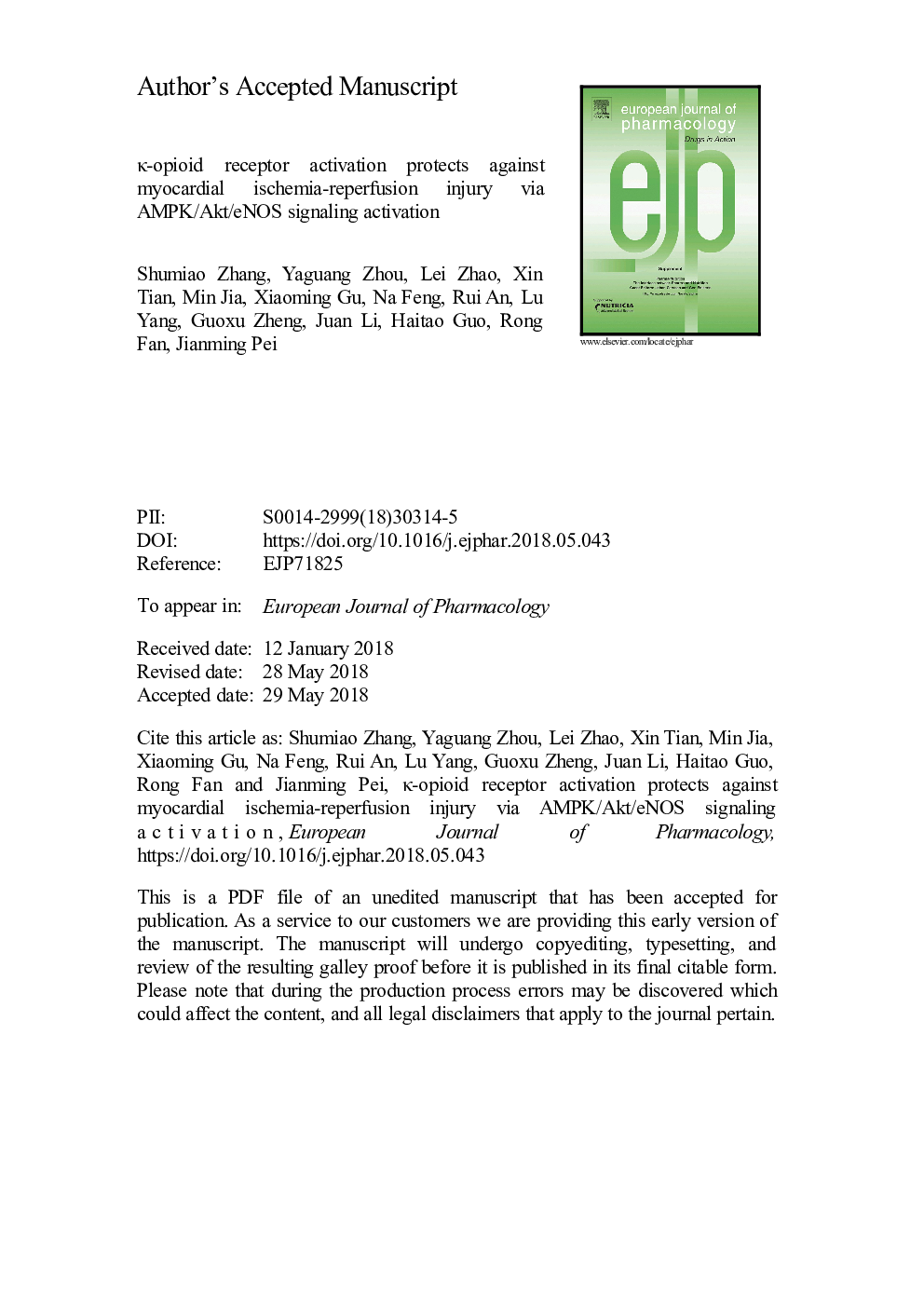| Article ID | Journal | Published Year | Pages | File Type |
|---|---|---|---|---|
| 8528971 | European Journal of Pharmacology | 2018 | 31 Pages |
Abstract
This study aims to investigate the effect of κ-opioid receptor activation on myocardial ischemia and reperfusion(I/R) injury and elucidate the underlying mechanisms. Myocardial I/R rat model and simulated I/R cardiomyocytes model were established. In vivo study showed that U50,488â¯H improved cardiac function, reduced myocardial infarct size and serum cTnT significantly. The effect of U50,488â¯H was abolished by nor-BNI(a κ-opioid receptor antagonist), Compound C(an AMPK inhibitor), Akt inhibitor and L-NAME(an eNOS inhibitor). AICAR, an AMPK activator, mimicked the effect of U50,488â¯H. U50,488â¯H up-regulated p-AMPK, p-Akt, and p-eNOS, which were abolished by nor-BNI. AICAR increased p-Akt and p-eNOS, which was abolished by Compound C. In vitro study showed that U50,488â¯H increased p-AMPK, p-Akt, and p-eNOS via κ-OR activation. The effect of U50,488â¯H on p-AMPK was abolished by compound C, but not Akt inhibitor and L-NAME. The effect of U50,488â¯H on p-Akt was abolished by compound C and Akt inhibitor, but not L-NAME. AICAR increased p-Akt and p-eNOS, which was abolished by Akt inhibitor, but not L-NAME. U50,488â¯H and AICAR also increased the viability of cardiomyocytes subjected to simulated I/R, the effects of U50,488â¯H and AICAR were blocked by nor-BNI, Compound C, Akt inhibitor, and L-NAME, respectively. In conclusion, κ-OR activation confers cardioprotection via AMPK/Akt/eNOS signaling.
Related Topics
Life Sciences
Neuroscience
Cellular and Molecular Neuroscience
Authors
Shumiao Zhang, Yaguang Zhou, Lei Zhao, Xin Tian, Min Jia, Xiaoming Gu, Na Feng, Rui An, Lu Yang, Guoxu Zheng, Juan Li, Haitao Guo, Rong Fan, Jianming Pei,
